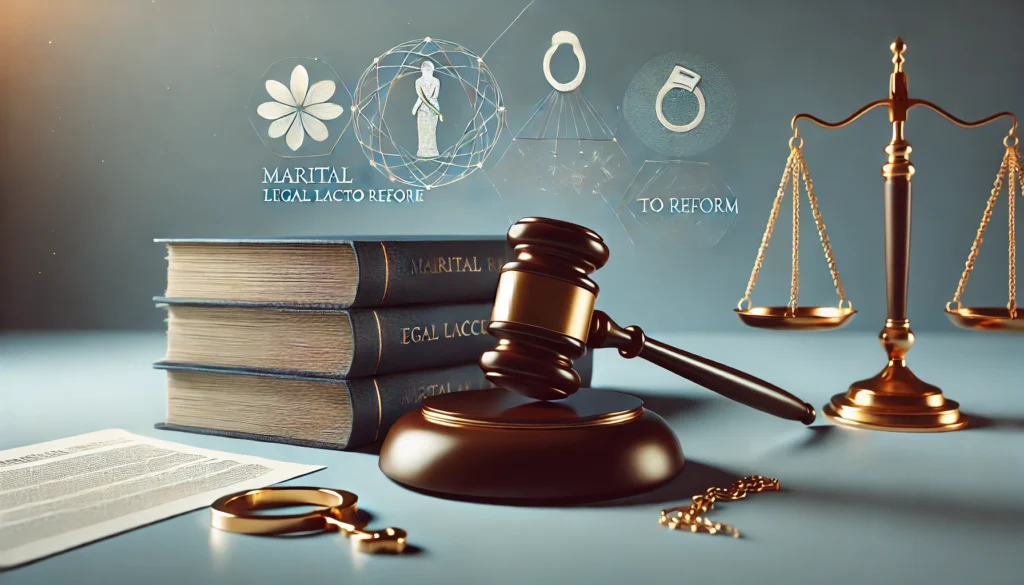Published On: 16th January, 2025
Authored By: Anjali Kumari
Amity law school Noida
Introduction
The case of Maneka Gandhi v. Union of India (1978 AIR 597, 1978 SCR (2) 621) is a landmark judgment in Indian constitutional law that fundamentally changed the interpretation of personal liberty and due process under Article 21 of the Constitution. This case arose in response to the Indian government’s decision to impound Maneka Gandhi’s passport under the Passport Act of 1967. She argued that this action was arbitrary and violated her fundamental rights.
The Supreme Court’s judgment played a transformative role in judicial interpretation by extending Article 21 to require a “fair, just, and reasonable” procedure. This strengthened the protection of civil liberties in India. The case also highlighted the interconnected nature of Articles 14, 19, and 21, establishing what is now often referred to as the “golden triangle” of the Indian Constitution.
Background of the Case
Maneka Gandhi, a journalist and daughter-in-law of former Prime Minister Indira Gandhi, was issued a passport in 1976. In July 1977, shortly after the Emergency period, the Regional Passport Officer in New Delhi ordered her to surrender her passport “in the public interest” under Section 10(3)(c) of the Passport Act of 1967. No reasons were provided for this order, and she was not allowed to present her case before the decision was made.
In response, Maneka Gandhi filed a writ petition under Article 32 of the Constitution, arguing that the impoundment order violated her fundamental rights under Articles 14 (right to equality), 19 (freedom of movement and expression), and 21 (right to life and personal liberty). Her challenge questioned whether the state could restrict personal liberty without adhering to a “fair, just, and reasonable” procedure. This case highlighted the limits of state power over an individual’s freedoms.
Legal Issues Raised
The Maneka Gandhi case presented significant constitutional inquiries:
- Scope of Personal Liberty under Article 21: The Court was tasked with determining whether “personal liberty” is confined solely to freedom from physical restraint or encompasses a wider range of individual rights, including the right to travel internationally.
- Relationship between Articles 14, 19, and 21: This case raised the issue of whether the limitation of personal liberty under Article 21 must adhere to the principles established in Articles 14 (equality before the law) and 19 (protection of certain freedoms).
- Interpretation of “Procedure Established by Law” in Article 21: The Court was called upon to assess whether this phrase necessitates a law that is arbitrary or if it demands a procedure that is fair, just, and reasonable.
- Extent of Judicial Review: This case provoked discussion regarding the extent to which the judiciary is permitted to intervene in evaluating the legitimacy of executive actions that may infringe upon fundamental rights.
Arguments of the Petitioner
Personal Liberty and Fundamental Rights: Maneka Gandhi posited that personal liberty, as enshrined in Article 21 of the Constitution, encompasses the right to travel freely, particularly in an international context. She contended that the impounding of her passport, executed without just cause, constituted a violation of her liberty and impeded her freedom of movement, which is a fundamental aspect of individual autonomy.
Fair Procedure Requirement: Gandhi maintained that the phrase “procedure established by law” within Article 21 should not be construed to permit any legal procedure, irrespective of its fairness. She argued that legislation impacting personal liberty must uphold the principles of due process, thereby ensuring a fair and just procedural framework, especially when fundamental freedoms are under consideration.
Linking Articles 14, 19, and 21: Counsel for Gandhi articulated that any limitations imposed on a fundamental right must comply with the criteria outlined in all pertinent articles of the Constitution. Consequently, a restriction on personal liberty under Article 21 must also align with the principles of equality and reasonableness stipulated in Articles 14 and 19. This argument advocates for a comprehensive interpretation of fundamental rights, indicating that they constitute an interconnected framework of protections.
Arguments of the Respondent
Public Interest and National Security: The Government of India justified its decision based on national interest, positing that permitting Gandhi to travel abroad could potentially jeopardize public safety. The government contended that, in circumstances pertaining to national security, the executive possesses the discretion to act without the need for scrutiny regarding procedural fairness.
Section 10(3)(c) of the Passport Act: The government invoked Section 10(3)(c) of the Passport Act, which grants the authorities the power to impound a passport in the interests of national security or public welfare. It asserted that this legal framework provided the requisite authority and fulfilled the criteria of “procedure established by law” as stipulated in Article 21.
Narrow Interpretation of Article 21: The state maintained that Article 21 should be interpreted restrictively, arguing that personal liberty necessitates adherence to legally established procedures, irrespective of the perceived fairness of such procedures.
Judgment and Key Findings
In a landmark ruling, a seven-judge bench of the Supreme Court unanimously adjudicated in favor of Maneka Gandhi, thereby significantly enhancing the interpretation of Article 21 of the Indian Constitution.
Broadened Scope of Personal Liberty: The Court determined that the term “personal liberty” within Article 21 encompasses a wide array of individual freedoms, extending beyond mere physical restraint or detention. This interpretation signifies a pivotal shift towards a more expansive understanding of liberty, which includes the right to travel and various dimensions of personal autonomy.
Golden Triangle Doctrine: The Court elucidated the interrelated nature of Articles 14, 19, and 21, asserting that these articles should be construed in conjunction with one another. According to the ruling, any law that infringes upon an individual’s personal liberty must adhere to the principles of fairness and reasonableness as articulated in Article 14, while also refraining from unreasonably curtailing freedoms outlined in Article 19. This integrated framework has come to be known as the “golden triangle” of the Indian Constitution, assuring comprehensive protection of individual rights.
Requirement of a Just, Fair, and Reasonable Procedure: The Court dismissed the premise that any arbitrary law could fulfill the requirements of Article 21’s stipulation of “procedure established by law.” Rather, it emphasized that such a procedure must be characterized as fair, just, and reasonable, thereby introducing a substantive due process element into Article 21. This interpretation drew inspiration from American jurisprudence, particularly the Fifth and Fourteenth Amendments of the U.S. Constitution, which encompass due process clauses.
Judicial Review of Arbitrary State Action: The judgment reiterated the judiciary’s role as a guardian of constitutional rights, maintaining that laws and executive actions that impact personal liberty are subject to judicial scrutiny. This expansion of the judiciary’s role empowers the Court to evaluate not only the legality but also the fairness and reasonableness of legislative measures.
Impact on Administrative Actions: The Court noted that when state actions impinge upon fundamental rights, adherence to principles of natural justice, such as the right to be heard, is imperative. Consequently, it advocated for procedural fairness, mandating that the state provide justifications for any limitations imposed on individual freedoms.
Impact and Significance
The judgment in the case of Maneka Gandhi represents a significant turning point in Indian constitutional law, with extensive implications:
Evolution of Article 21: This landmark decision expanded the interpretation of Article 21, thereby leading to the incorporation of various rights under the umbrella of “right to life and personal liberty.” Over time, the judiciary has interpreted Article 21 to encompass rights such as privacy, health, shelter, education, and dignity. This progressive interpretation was notably influenced by the precedents set in the Maneka Gandhi case.
Due Process and Natural Justice: The ruling introduced the principle of due process into Indian jurisprudence, aligning the country’s legal framework with constitutional protections found in jurisdictions such as the United States. The established standard of “fair, just, and reasonable” established a benchmark for procedural safeguards within laws that restrict personal liberty. This has had a significant impact on subsequent judicial rulings concerning preventive detention, censorship, and privacy rights.
Strengthened Judicial Oversight: By affirming the judiciary’s role in assessing the fairness and reasonableness of laws, the Maneka Gandhi judgment bolstered judicial review. This development has facilitated future cases in which the judiciary has intervened to safeguard individual rights against arbitrary or oppressive legislation.
Influence on Future Judgments: The principles established in the Maneka Gandhi case have been consistently referenced in later judgments concerning personal liberty. A notable example is the case of K.S. Puttaswamy v. Union of India (2017), which recognized the right to privacy as a fundamental right. This judgment heavily utilized the Maneka Gandhi precedent to assert that privacy is integral to personal liberty and dignity under Article 21.
Rights Against Arbitrary Detention: The Maneka Gandhi judgment has also had a profound impact on rulings related to preventive detention. Courts now evaluate whether detentions are consistent with fairness standards. This evolution demonstrates a shift away from the more restrictive interpretation found in the earlier case of AK Gopalan v. State of Madras, favoring a broader approach that promotes stronger opposition to arbitrary detention and upholds procedural fairness.
Conclusion
The case of Maneka Gandhi v. Union of India represents a pivotal moment in the evolution of constitutional jurisprudence in India, particularly regarding the interpretation of the right to life and personal liberty as enshrined in Article 21. The Supreme Court’s mandate that any procedure affecting personal liberty must be “fair, just, and reasonable” has significantly strengthened safeguards against arbitrary actions by the state while underscoring the importance of natural justice.
The introduction of the “golden triangle” doctrine, which interlinks Articles 14, 19, and 21, necessitates that any limitations imposed on individual rights be subjected to rigorous standards of fairness, equality, and reasonableness. This landmark ruling has profoundly influenced subsequent legal cases, embedding the principle of due process within Indian law and facilitating the recognition of various rights, including those related to privacy, dignity, and personal autonomy.
Overall, the Maneka Gandhi decision illustrates a significant transition towards a rights-based interpretation of the Constitution, highlighting the judiciary’s essential role in protecting fundamental rights. It asserts that the protective measures afforded by the Constitution must adapt to the evolving requirements of a democratic society. The case continues to serve as a vital precedent, reinforcing the judiciary’s dedication to upholding individual freedoms and ensuring that any legislative constraints on these freedoms are rigorously examined, consistent with the principles of justice and equality that the Constitution espouses.




